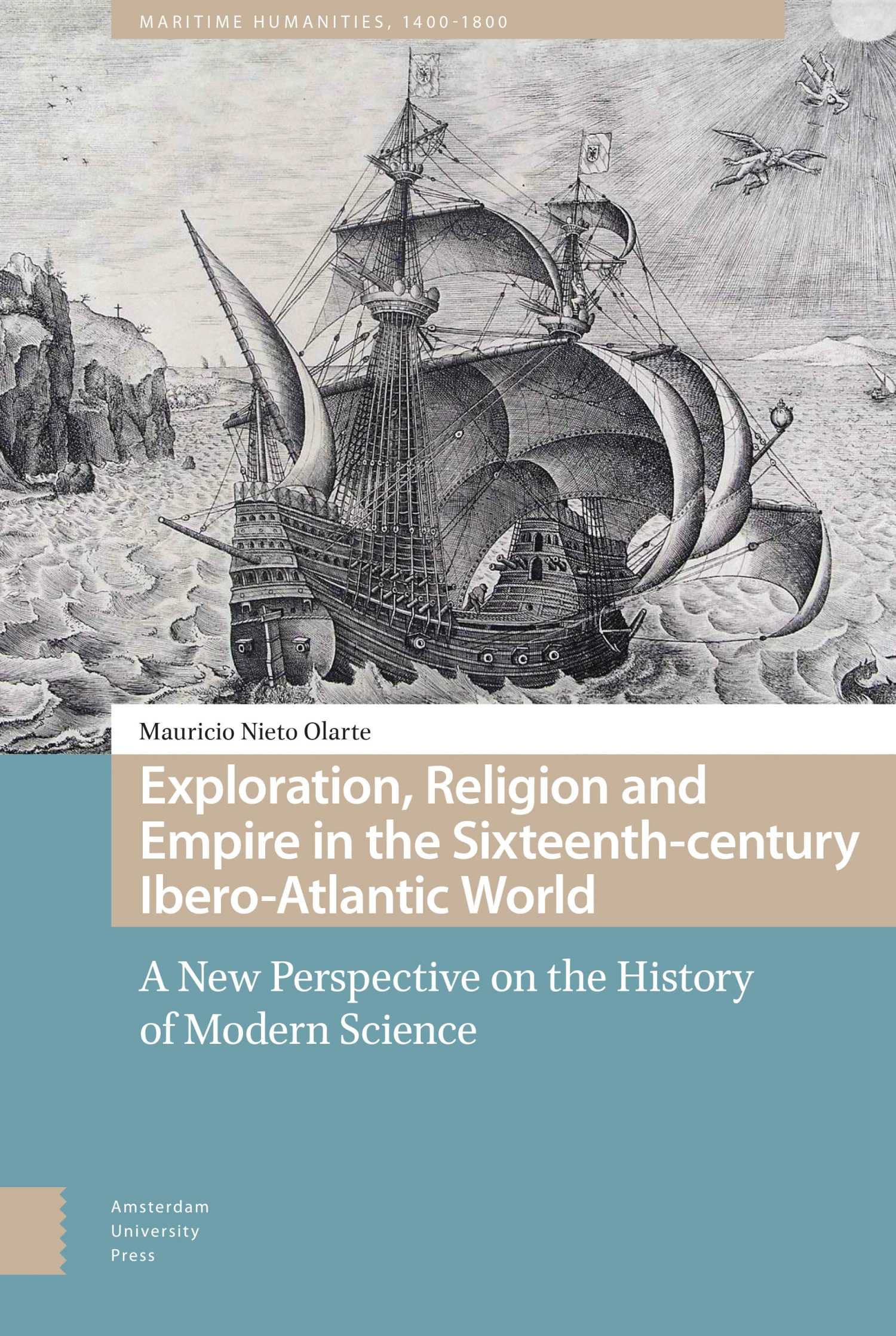
Author: Mauricio Nieto Olarte (University of Los Andes, Bogotá)
Publisher: Amsterdam University Press, 2021
The Iberian conquest of the Atlantic at the beginning of the sixteenth century had a notable impact on the formation of the new world order in which Christian Europe claimed control over most a considerable part of the planet. This was possible thanks to the confluence of different and inseparable factors: the development of new technical capacities and favorable geographical conditions in which to navigate the great oceans; the Christian mandate to extend the faith; the need for new trade routes; and an imperial organization aspiring to global dominance.
The author explores new methods for approaching old historiographical problems of the Renaissance—such as the discovery and conquest of America, the birth of modern science, and the problem of Eurocentrism—now in reference to actors and regions scarcely visible in the complex history of modern Europe: the ships, the wind, the navigators, their instruments, their gods, saints, and demons.
Contents
Introduction
1. The Iberian Peninsula and the Atlantic
2. The imperial bureaucracy and the appropriation of the New World
3. The piloto mayor: cosmography and the art of navigation
4. Machines of the empire
5. The Master Map (Padrón Real) and the cartography of the New World
6. The creatures of God never seen before: natural history
7. The New World, global science, and Eurocentrism
Bibliography
About the Author
Index